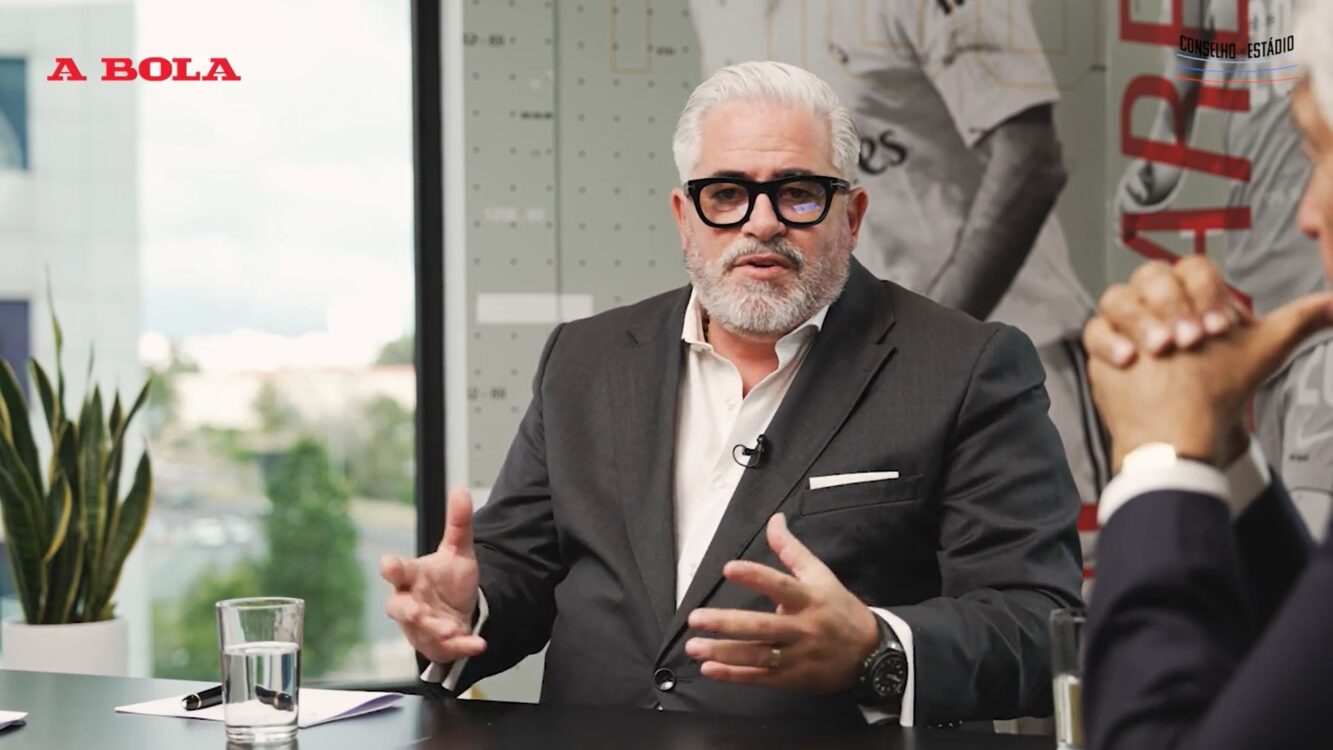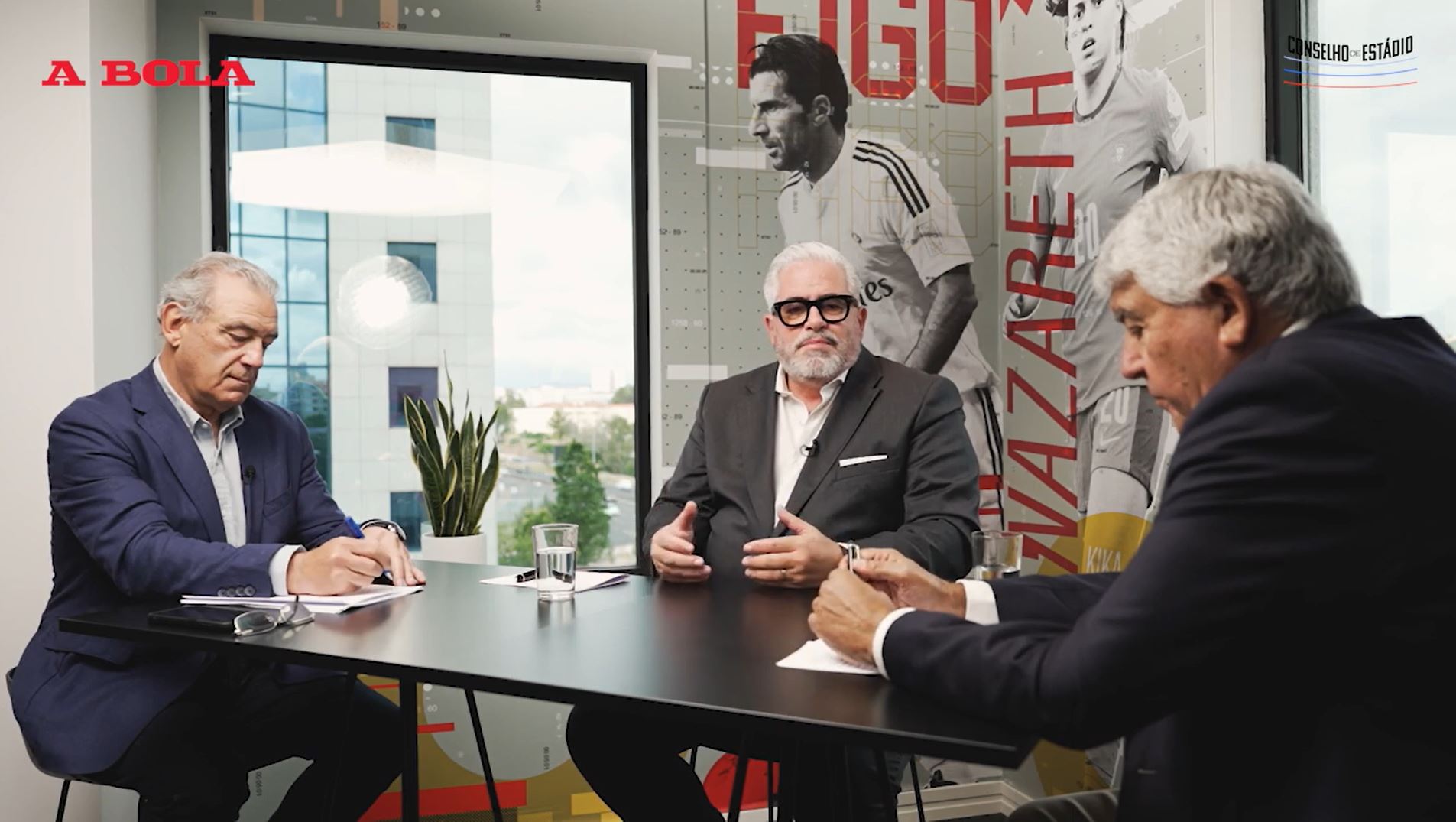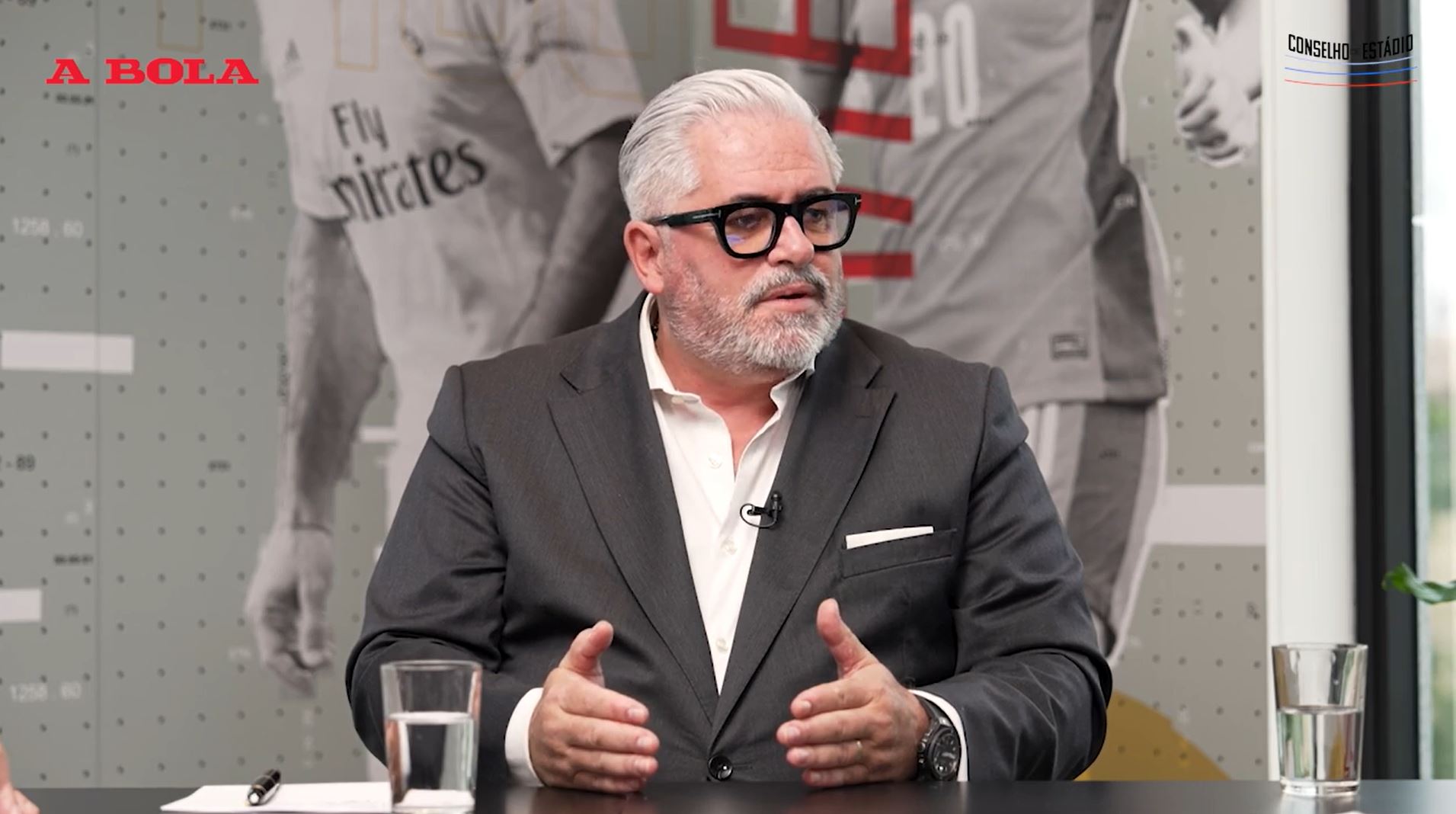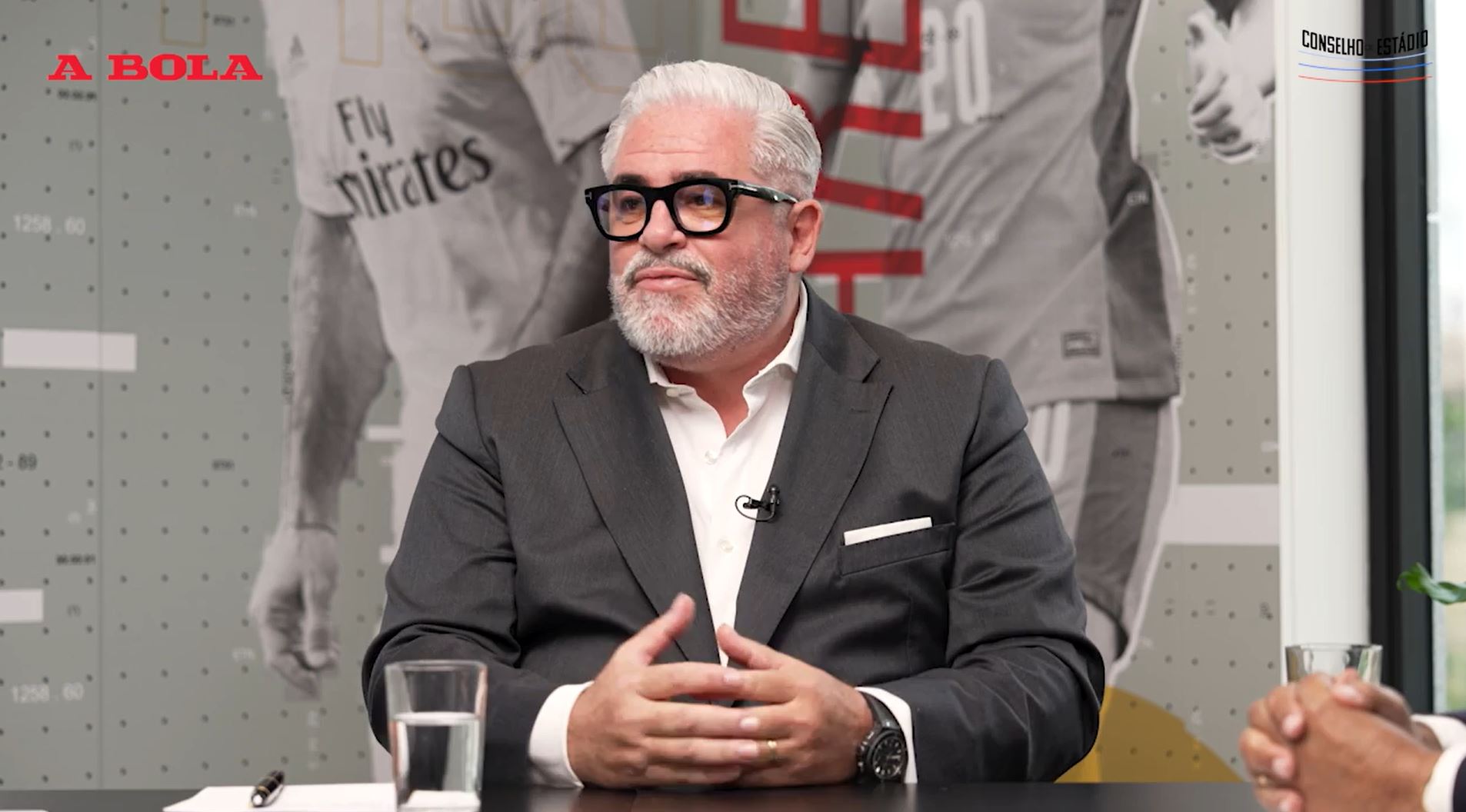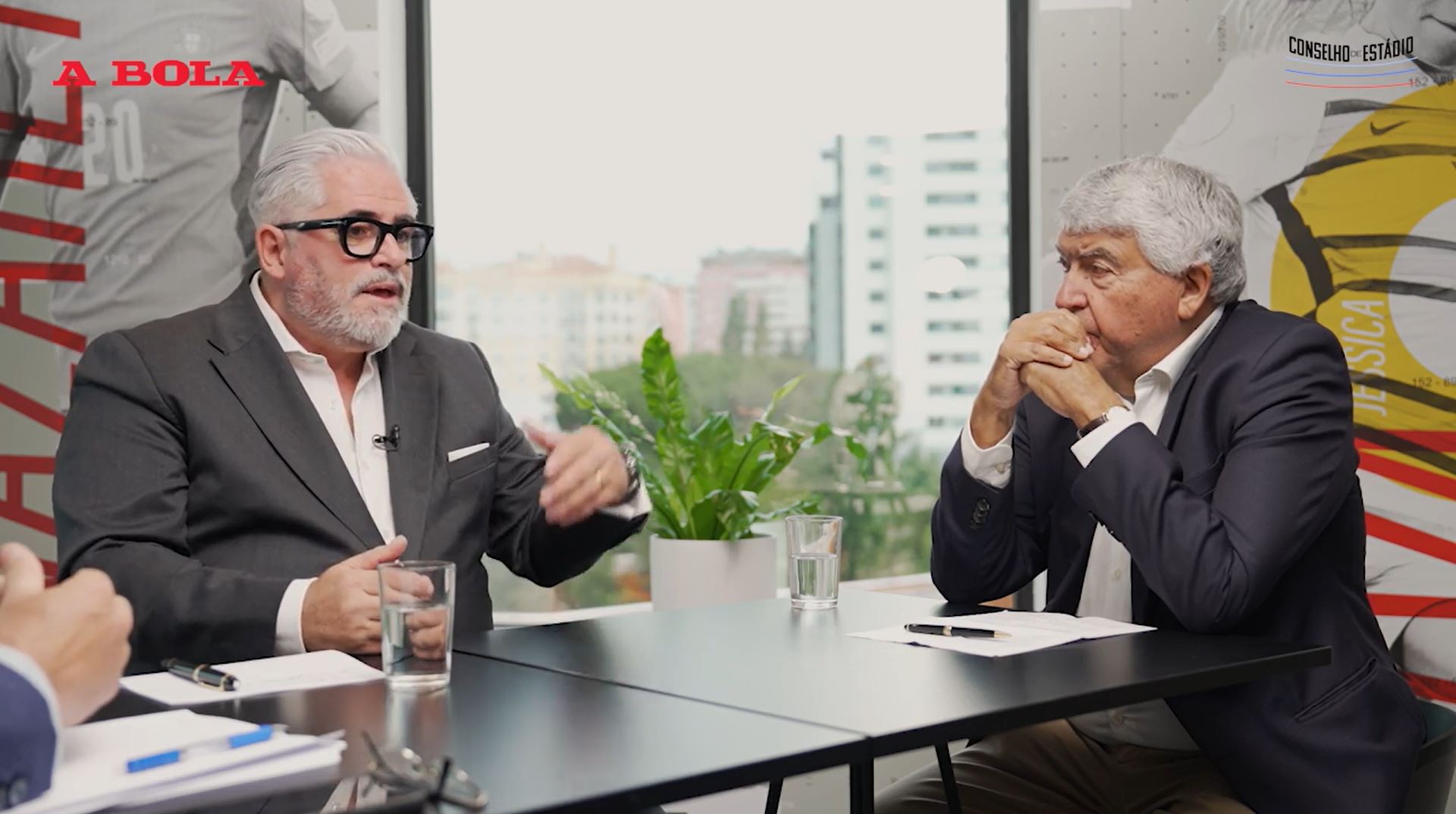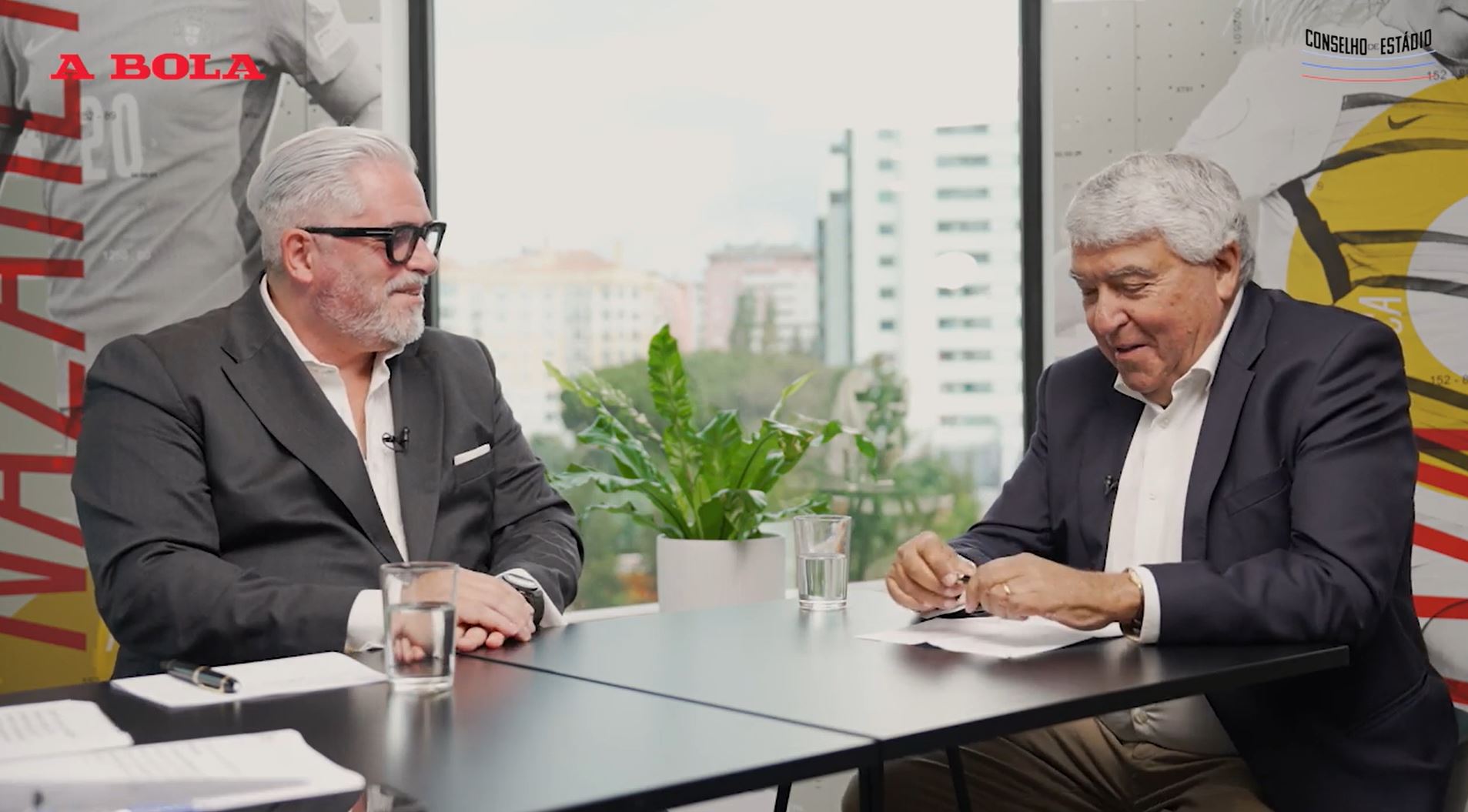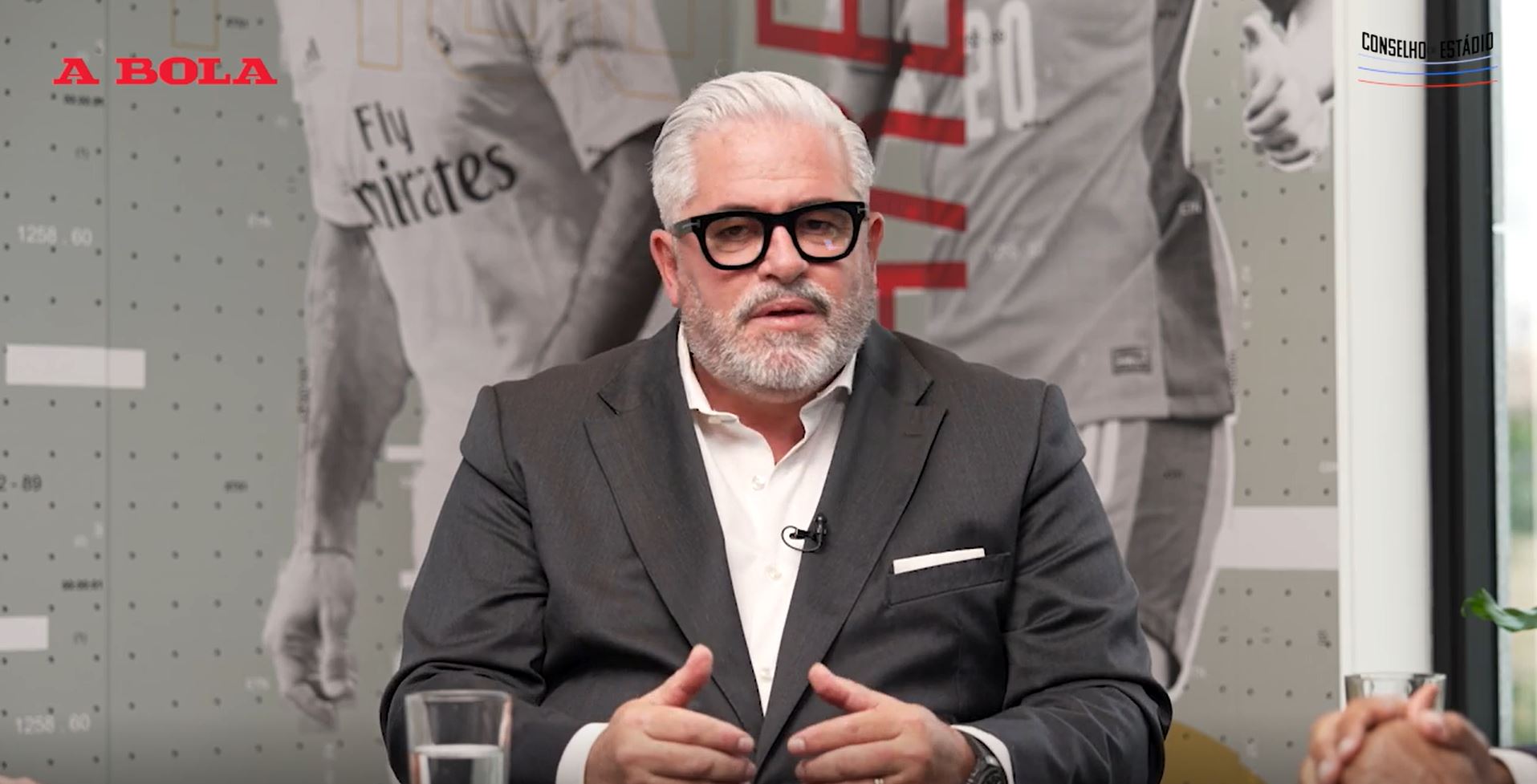Emanuel Macedo de Medeiros, Global CEO of SIGA, gave an in-depth interview to the Portuguese media outlet A Bola, conducted by journalists Vítor Serpa and José Manuel Delgado. In this conversation, which was broadcast on A Bola TV and is echoed today across four pages of the newspaper, and online, Macedo de Medeiros provides a comprehensive analysis of the Sports landscape in Portugal and globally, discusses the challenges the industry faces and presents solutions.
Watch the interview here and read below the highlights on the most relevant topics covered.
HOW FIFAGATE SHOOK SPORT AND PROPELLED SIGA
“The US Department of Justice, through the FBI, initiated the watershed moment in Zurich that exposed, after a long period of dormancy, what had already been the subject of commentary. It was impossible to ignore the atmosphere of poor governance, abuse, and opacity in financial flows that, taking advantage of the financial evolution of Sport, aimed at less advisable intents. Besides the Department of Justice, there was involvement from the State Department, Homeland Security, and the President’s Council on Sports, with whom I signed the first cooperation agreement in 2017, which I have since renewed with all subsequent US Presidencies. The European Commission was also always with us. In fact, it was the first institution to host the inaugural meeting of the expert group I formed to develop Universal Standards for Sport Integrity. We had the support of all major institutions.”
HOW SUCCESS CONNECTS WITH INTEGRITY & FAIRNESS
“Any Sporting event that is not competitive and balanced loses interest. Unlike what happens in businesses, where market competition can lead to the extinction of competitors, football is different. Football is a phenomenon of interdependencies. A club does not exist in a vacuum. It exists because there are other clubs that form a league, creating a product and organizing a competition. That is where the value lies. I have never seen any sector thrive on verbal stabbings, mudslinging, constant attacks, and suspicion. How can a sector like this be valued? At this moment, as we witness a generational renewal, I hope and wish that there will also be a renewal of mindsets.”
SIGA’S FOUR PILLARS
“We have a consolidated, mature and well-developed vision that tackles all problems at their root. Therefore, we operate with a set of Universal Standards on Sport Integrity, including Good Governance, which covers how organizations are governed and operate in adherence to democratic principles, with anti-corruption standards, respect for diversity, inclusion, and promoting gender equity. This is the first pillar. Then, the second pillar is Financial Integrity, which deals with financial flows, the credibility and credentials of investors, jurisdiction, and supervision in these areas. This encompasses the ownership of the share capital of Sport companies, financial transactions related to player transfers, commercialization of television rights, and sponsorship contracts… because in Portugal there is no public tender for Sport sponsorship.
We have a third pillar, which is the Sports Betting Integrity. In this area, we were among the first entities, perhaps even the first, to provide a set of Universal Standards that, if followed, can be the ‘silver bullet’ in this domain. The last pillar is related to Youth Development & Protection. Again, let me say, one case of player trafficking or abuse is one case too many, and it is unacceptable. Ten years ago, in Brazil, I drew attention to the need to prevent and combat a vicious triangle between Brazil, the gateway out of Latin America, Portugal, the gateway into Europe, and Africa. This triangle remains active and must be relentlessly fought by all authorities, Sports institutions, and clubs. And, once again, we respond to this with a set of Universal Standards that provide us with the strategy to avoid and prevent this evil. But let me say, since I mentioned Portugal and Brazil, that the reality is incomparable. Despite Portugal’s weaknesses, it is evident that we have made a qualitative leap. I remember, while I was still at Liga Portugal, writing to the then president of the Portuguese FA, Gilberto Madail, and the vice-president Amândio de Carvalho, warning of the need for federative regulation to approve the criteria for certifying training clubs, under penalty of – I emphasized – all training contracts being legally non-existent. Therefore, I congratulated Fernando Gomes because when he was elected for the Federation, it was one of the first problems he tackled, and this explains why today, in Portugal, there are around 700 certified training clubs. In contrast, in Brazil, there are only 56 certified training clubs. This also highlights not only the good work that has been done in Portugal – and I acknowledge that there is much more to do – but that there is still much more to do in Brazil, the homeland of the “beautiful game”, which has supplied clubs around Europe and the world with its talent.”
FIGHTING RACISM IN SPORT
“Racism is one of the most abhorrent expressions humanity has invented and must be fought relentlessly in society in general and throughout Sport as well. I have followed all the good initiatives, both at the national and international organization levels, and I do not question the sincerity of their intentions nor the commitment of the leading voices in this space. But, in fact, we are not winning. Racism must be fought with zero tolerance, and also with continuous training, education, and capacity building. It cannot be seen as a situational priority. It must be seen as a structural priority. Together with our members, we are preparing to launch a program not only to combat and prevent racism, with other international entities but also to prevent match-fixing and competition manipulation.
This initiative is especially aimed at young athletes, who are the most vulnerable. When I created SIGA, it was to have a positive voice, a constructive message, oriented towards action. We are ready to work with everyone, even those who have broken the law, because we believe in the power of redemption. Thus, we do not make judgments, nor do we pursue scorched earth policies.”
MATCH FIXING
“Regarding match-fixing, I remember having the opportunity, even before the pandemic, to express my concern, and I pointed out that 80% of betting operators worldwide operate in black or grey areas, without regulation, without licensing, in a context of great opacity, without control, without supervision, and without scrutiny of financial flows. And when a ‘cluster’ represents, as it did in 2019, between 3 to 5 trillion dollars per year in Sport Betting money, we are talking about a lot of money and a global market. The days when organized crime operated with machine guns in hand, like Al Capone, are long gone. Nowadays, there are many and varied, more sophisticated ways for criminal entities to infiltrate legitimate sectors of society and the economy.”
SPORTS BETTING REGULATION IN BRAZIL
“In Brazil, there is recent legislation that addresses, as much as possible, many of SIGA’s concerns. However, 80% of betting operators are not licensed in Brazil but in paradises like Curaçao. What is the scrutiny, what is the supervision? How can the system’s integrity be guaranteed? This is a challenge I pose to the authorities because there is a lot at stake. There is a lack of strategic vision and leadership from governments, which have the mandate to fulfil and must look after the public interest. This cannot be achieved with international summits and pompous proclamations, as I have witnessed many times, where government officials sit and read a speech written by some advisor and leave after taking the customary photo. We want results. Governments must prioritize safeguarding the integrity of sport because it is an economic and social sector that cannot be neglected. And this should start with the government structures, which must have a Minister of Sports.
THE MAIN INTEGRITY CHALLENGES PORTUGAL IS FACING
There are some serious problems in the Sport sector in Portugal. However, it is important to recognize that Sport in Portugal, particularly football, has made significant strides compared to what I found in 1993 when I first took a leadership position. I’m talking about, for example, infrastructure with modernized stadiums, the legal framework for Football Clubs, and the legal frameworks for federations, which have been consistently updated. Additionally, the certification of training clubs, which has been delayed since 1998, has seen progress. It is undeniable that the advancement is extraordinarily positive.
One of the major obstacles has been financial polarization. We continue to have three clubs that monopolize the revenue stream in a business that is co-owned by all of them. Benfica could not exist without competing against clubs like Aves, Vizela, or Rio Ave.”
CLUB OWNERSHIP AND ULTIMATE BENEFICIAL OWNERS CONTROL IN PORTUGAL
“When we have investment funds entering through our doors, emerging like mushrooms all over the world, are we expecting the IPDJ (Portuguese Institute of Sports and Youth) to scrutinize the credentials of these investors, their sources, and the nature of this money through a self-declaration, “under penalty of perjury,” saying, “I swear on my honour that I will comply with the law”? What are we waiting for?! We want Sport in Portugal and worldwide to be respected, treated with dignity, and able to hold its head high. Without proper regulation and effective scrutiny, we are merely imitating the orchestra on the Titanic.”
THE FUTURE OF FOOTBALL IN PORTUGAL
“Either the clubs and all involved entities strictly comply with the law, or the future of football will be determined not by the clubs, not by the leagues and federations, but by the police authorities and the courts. This applies not only to Portugal but also to Spain, Italy, France, and beyond. We have already identified the problems, and we must work on solutions with deadlines, goals, and results…
There can be no compromise. Without Sport Integrity, what do we have? Nothing. No business, no revenue. Integrity is the driving force and the lifeblood of all the potential Sport Industry has to satisfy popular passions. We have had enough of risk management practices over the past 30 years in clubs feverishly striving to win titles or qualify for UEFA competitions at any cost. And we know cases of clubs that were managed prudently and suddenly faltered. What has become of them?”
SPORT VS OTHER INDUSTRIES
“I often ask myself what other sector can teach Sport, specifically football, lessons. It is true that football has often done much harm to itself and has been frequently masochistic. But who can teach it lessons? The banking sector? Politics? The parties? Municipalities? I think we need to stop the hypocrisy, face and acknowledge the problems, and work together. And seriously. This is the hour of truth.”
SIRVS & UNIVERSAL STANDARDS TO REFORM SPORT
“SIGA does not claim to solve the world’s problems. We do not have that redemptive mission, and we operate within a defined scope, but we want change. To this end, we are determined to implement an independent rating system. And that might scare many people. Why not adopt SIGA’s Universal Standards and submit to independent scrutiny (SIRVS), which makes all the difference? I will ask this question to everyone. This is fundamental for the media, the fans, the sponsors, the governments, or the TV operators, who, when investing their money, are also investing their reputation. They need to feel that this investment is in good hands and that sports integrity is safeguarded.
Which sponsors prioritize integrity when signing a sponsorship contract? They are on the front line. Do they invest anything in Sport Integrity? Some, very few, maybe. At the beginning of this crusade, the CEO of a major US corporation told me that there was only one thing that kept him up at night: reputational damage. He knew that if he sponsored that club or some league, and then there was a scandal or negative news, it would explode his reputation and shareholders and consumers would demand explanations, with market consequences. This happened when I was in Washington on May 27, 2015, with Coca-Cola’s first vice president, dealing with integrity issues, so that Coca-Cola would take a more active stance in favour of Sport Integrity… At one point he asked for a break. News of the FBI’s intervention in Zurich had already broken. When he returned, he was as pale as a ghost. Consumers were demanding explanations and protesting, questioning how Coca-Cola could associate (as it was one of the main sponsors) with a “criminal organization”?
SIGA’S GROWTH IN LATIN AMERICA
“We reached Brazil following contacts made before the pandemic. In February 2022, I received contacts from an organization that serves as an umbrella for several Brazilian sponsors, the ‘Pacto pelo Esporte’. They wanted to continue investing in football and Sport, but felt uncomfortable with the fact that many Sport Organizations did not guarantee Good Governance and Integrity. That is why they asked us to create what is now SIGA LATIN AMERICA, and through our toolbox – universal standards, rating system, etc. – design a set of requirements that sports organizations would have to meet for these sponsors to continue investing. That was a game-changer moment. In October last year, I signed a cooperation agreement with the Brazilian Government to use SIGA’s independent rating system as a filter to determine which organizations are truly well governed. The next day, I signed a similar cooperation agreement with the Congress. In March this year, São Paulo FC, one of Brazil’s biggest clubs, became a member of SIGA and started adopting SIGA’s Universal Standards and undergoing SIGA’s independent rating and verification system.
It is a leading club, setting an example: a club that does not run away, does not hide, nor isolate itself. And that is the step I want other clubs to take. Two months ago, after a series of talks, the CBF also signed a cooperation agreement with SIGA to adopt our universal criteria and submit to the rating system. We are already developing the “Independent Study on the Future of Football in Brazil,” covering all key areas. In a year, I hope to have this ‘roadmap’ ready to be implemented. Brazil has to take steps forward, and now, with the assignment of hosting the FIFA Women’s World Cup, responsibilities are greater, and the need to produce results is more intense.”
A CALL TO ACTION
“Through A BOLA, I urge governments, leagues, federations, clubs, their leaders, and athletes to understand the meaning and scope of this phase we are going through. We are ready to work with everyone. Not to judge, impose, or dictate. But to propose, convince, and stimulate this qualitative leap. It’s now or never!”
Click to download the interview in PDF
— THE END —
ABOUT SIGA
SIGA is the world’s leading organisation for Sport Integrity. We are creating a whole new landscape for the sports industry by delivering independent global rating and certification for world Sport to ensure it is governed and operates under the highest integrity standards: The SIGA Universal Standards.
Funded by our Members, SIGA is a non for profit global independent organisation with one aim: To ensure the sport industry is governed under the highest integrity standards so that the values of sport are protected.
SIGA is the only organisation to bring together sport, governments, academia, international organisations, sponsors, business, rights holders, NGOs and professional services companies, from every region in the world, around a common cause of fostering greater integrity throughout sport.
SIGA is headquartered in Geneva, Switzerland, as a non for-profit association, and comprises of the following continental subsidiaries: SIGA AMERICA, SIGA EUROPE and SIGA LATIN AMERICA.
For more information on SIGA, including its vision, mission and reform agenda, please refer to the website: www.siga-sport.com and FAQs.
To contact SIGA, please email: comms@siga-sport.com.
@Sigalliance – Twitter, Instagram, Linkedin | #SIGA #SIGAWoW

